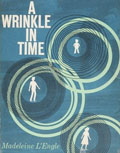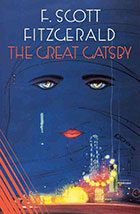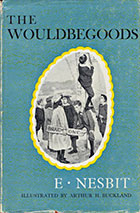 “Famous books,” “classics,” “great”—words that are commonly used but hard to define. One year’s “great’ book, is another year’s discard. Academic and critical fashions rise and fall. Books like Moby Dick, dismissed at one time, are given laurels at other times. Books like A Wrinkle in Time were famously rejected at one point, hailed later. Ultimately, I think, readers tell us what is important in the world of books. They do not last unless they are enjoyed by many people over a long period of time. I have two stories as to what makes greatness, or at least as defined by a couple of my kids.
“Famous books,” “classics,” “great”—words that are commonly used but hard to define. One year’s “great’ book, is another year’s discard. Academic and critical fashions rise and fall. Books like Moby Dick, dismissed at one time, are given laurels at other times. Books like A Wrinkle in Time were famously rejected at one point, hailed later. Ultimately, I think, readers tell us what is important in the world of books. They do not last unless they are enjoyed by many people over a long period of time. I have two stories as to what makes greatness, or at least as defined by a couple of my kids.
 One day my eldest, when in high school, burst into my office, book in hand.
One day my eldest, when in high school, burst into my office, book in hand.
“Dad! Dad! You have to read this book. It’s fantastic. Amazing! Have you ever heard of it?”
And he offered me his copy of The Great Gatsby.
 Second story: I had been reading Edith Nesbit’s Wouldbegoods to my nine-year-old, who loved these Edwardian tales of an English family. This was bedtime reading and he had already been tucked into his blankets. Since I had already published and had begun to receive fan letters, it was not altogether surprising that my son said, “Dad, I really like these books. I’d like to write a letter to the author.”
Second story: I had been reading Edith Nesbit’s Wouldbegoods to my nine-year-old, who loved these Edwardian tales of an English family. This was bedtime reading and he had already been tucked into his blankets. Since I had already published and had begun to receive fan letters, it was not altogether surprising that my son said, “Dad, I really like these books. I’d like to write a letter to the author.”
“That’s very nice,” I said, “but I’m afraid you can’t.”
“Why not?”
“I’m afraid she died a long time ago.”
He sat bolt upright and cried. “That’s impossible!”
“Why?” I asked.
“Because she knows so much about me!”
Greatness, as defined by two readers.
2 thoughts on “What makes a book great?”
Love this, Avi. Now must go in search of The Wouldbegoods, as I don’t know that one …
I simply adore your son’s reaction to Edith Nesbit, I will now have to find this book.